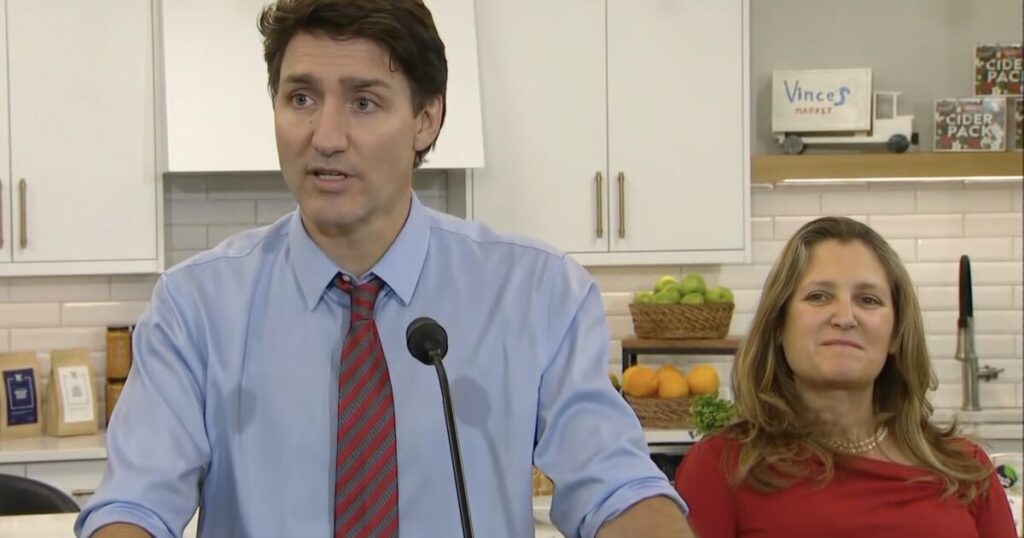On November 21, 2024, Canadian Prime Minister Justin Trudeau made a controversial announcement regarding Israeli Prime Minister Benjamin Netanyahu, stating that Canada would arrest him if he entered the country. This declaration followed the International Criminal Court (ICC) issuing arrest warrants for Netanyahu, former Israeli Defense Minister Yoav Gallant, and Hamas official Mohammed Deif. These warrants were based on allegations of war crimes and crimes against humanity linked to the violent conflict that erupted after the brutal Hamas attacks on Israel on October 7, 2023. During these attacks, around 1,300 Israelis, including many children, were killed, marking one of the deadliest days for Jews since World War II. Furthermore, Hamas took 250 individuals hostage, exacerbating the violence and conflict in the region.
In the wake of the unprecedented October 7 assault, the Israeli government, spurred by President Isaac Herzog’s vow to annihilate Hamas, ramped up military operations against the militant group. These actions prompted significant casualties on both sides, particularly in Gaza, where the military campaign led to the death of thousands of Hamas fighters and numerous innocent civilians. Reports indicated that Hamas had embedded its operations within civilian populations, utilizing schools, mosques, and hospitals as shields against Israeli airstrikes. The devastation in Gaza has drawn international attention and criticism, leading to the ICC’s involvement and subsequent pursuit of justice concerning war crimes associated with the ongoing conflict.
Trudeau’s comments were made during a press conference alongside his senior aide, Chrystia Freeland, whose controversial family history has since come under scrutiny. Freeland is the granddaughter of a prominent Nazi, which has raised questions about the implications of her family’s past in relation to her current political stance and policies. Critics have pointed to her lineage, suggesting that her background may influence her role in the Trudeau administration’s approach to international issues, particularly those involving Israel and Palestine. The juxtaposition of her heritage and Trudeau’s words drew attention on social media platforms, where opponents highlighted what they perceived as a troubling historical irony.
The backdrop of Trudeau’s stance includes not only the psychological impact of the October attacks but also his administration’s broader foreign policy orientation, which appears increasingly aligned with international institutions like the ICC. By siding with the ICC’s decisions, Trudeau signifies a willingness to confront longstanding geopolitical tensions involving Israel, Hamas, and their respective supporters and detractors. This approach has attracted criticism from various quarters, including those who perceive it as undermining Israel’s right to defend itself against terrorism. The controversial nature of the announcement signals a potential pivot in Canada’s foreign policy, specifically regarding its relationship with Israel and its interactions with international legal frameworks.
In the context of domestic politics, Trudeau’s remarks and the ICC’s warrant have sparked a national conversation about the implications of international law on Canadian sovereignty and foreign relations. The invocation of arrest warrants creates potential legal and diplomatic complications, particularly if relations with Israel are significantly impacted. Canadians are divided on such issues, with some supporting Trudeau’s alignment with the ICC, viewing it as a commitment to human rights and justice, while others argue that it might harm Canada’s relationship with a key ally in the Middle East. The discourse reflects broader concerns over geopolitics and the responsibilities of nations in facing allegations of war crimes.
In conclusion, Justin Trudeau’s announcement regarding Benjamin Netanyahu represents a significant moment in Canadian foreign policy and international relations, particularly against the backdrop of the ongoing Israeli-Palestinian conflict. By publicly committing to align with ICC actions, Trudeau not only aligns Canada’s foreign policy with prevailing international legal standards but also revives discussions about historical legacies and their influences on contemporary politics. With various political factions examining the implications of this position, the response to Trudeau’s announcement will likely influence Canada’s future dealings with Israel and its approach to global issues that invoke questions of humanitarian law and accountability in conflict zones. As the situation develops, observers will closely watch the impact of these actions on both domestic and international fronts.

